Polymers Petrochemicals Automotive Composites 25-03-2019 - Arhive
Polymers PET Resin Petrochemical Prices
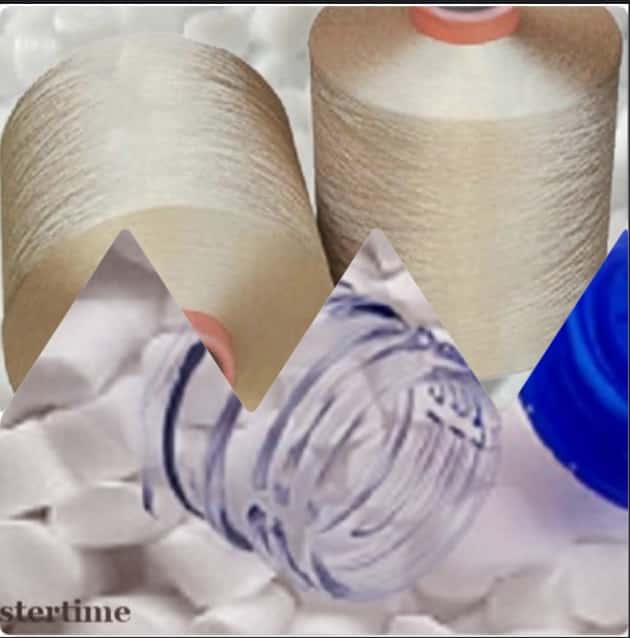
Taiwanese Formosa Plastics Corp. (FPC), a major global manufacturer of petrochemical products, on March 19 lowered its price offers of polyvinyl chloride (PVC) for deliveries to the Chinese market in April by USD50 per ton compared to March of the current year, market sources told ICIS .
So, the April price offers of the company for China were announced at USD850 per ton, CFR China, with a discount of USD10 per ton for purchases of material from 500 tons.
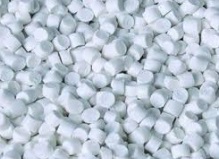
Crude Oil Prices Trend

The European Commission has published a new study Environmental impact assessments of innovative bio-based products. The study aims at providing science-based facts and evidences on the environmental impacts of bio-based products for comparison with petrochemical plastic counterparts, in order to support the future bioeconomy policy and decision-making at the EU level. The report concludes that for all analysed case studies, the bio-based products offer environmental benefits in the impact categories climate change and abiotic depletion in comparison to their conventional plastic counterparts.
Seven cradle-to-grave Life Cycle Assessment (LCA) case studies were carried out covering three major commercialised bio-based polymers:
Bio-based polyethylene terephthalate (PET; “beverage bottles”);
Polylactide acid (PLA; “single-use cups”, “single-use cutlery”, “packaging films”);
Starch plastics (“clips”, “mulch films” and “carrier bags”).

Light, sweet crude oil for May delivery dipped to settle just below $60/bbl on Mar. 21, while Brent prices for May settled under $68/bbl. Production cuts by the Organization of Petroleum Exporting Countries and US sanctions against Iran and Venezuela are contributing to a tightening of supply, buoying prices near 2019 highs.
OPEC’s crude output hit 30.7 million b/d in February, down from 32.8 million b/d in mid-2018 and cuts are expected to continue.
“With the driver of the OPEC bus, Saudi Arabia, showing no signs of wavering in the face of renewed pressure from Washington, we believe that OPEC is likely to extend the deal for the duration of 2019,” RBC said in a Reuters report.

Bio-plastics are obtained from different biomass sources, the most widely is used is starch, which is a natural polymer. Starch based plastic films are made up of starch alone are usually brittle and have low moisture barrier, so they are incorporated with different material.
Starch based plastic finds wide applications in petroleum based polymers to create different composite materials which are then processed through extrusion or injection molding using standard machineries. Among the variety of biodegradable plastic available, starch based plastic account for almost half of the market.
Starch based plastics are used in the production of bags for recycling organic waste, hygiene products, packaging materials, in agriculture & biomedical fields. Moreover, starch based plastics are employed in the medical industry owing to its enhanced non-toxicity, biocompatibility, better mechanical properties, and degradation properties as required.
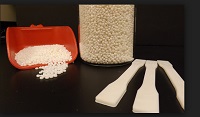
Trelleborg A.B. is moving forward with a previously disclosed expansion plan at its OTR and farm tire plant in Otrokovice, Czech Republic, according to a company spokeswoman.
Trelleborg took over the Otrokovice plant as part of its 2016 acquisition of Czech-based CGS Holding and its Mitas tire operations.
Trelleborg Wheel Systems President Paolo Pompei made public Trelleborg’s intention last June to expand the plant as part of the company’s decision to add earthmover tires to its OTR product portfolio.

The prospect of impending government regulations against single-use plastic packaging is causing companies to ramp up biodegradable plastic production
Biodegradable plastics made from agricultural sources such as corn and sugar cane are emerging as an alternative to traditional petroleum based products
Lou Zhongping, dubbed the “king of plastic straws”, is changing his strategy.
The founder and chairman of Saton Daily Necessities is spending US$15 million to double the size of his factory in Yiwu, Zhejiang province to produce biodegradable straws, Plastic Newsreported earlier this month.
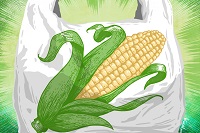
The European polyethylene terephthalate (PET) market is quiet but tense as demand in many places lacks the usual momentum and production costs have risen.
– Season fails to pick up
– Caution on April production costs
– Demand needs to improve
The response to negativity in financial sectors has resulted in customers waiting before buying.
There are areas where sales are doing well, due in part to warmer weather that traditionally marks the start of the bottle season.
“…the weather is very good and the contracts we are supplying are at the highest levels,” a seller said.
In general, this year hosts a heavily contracted market, and one that has had an increased interest in importing material from Asia. This activity dates back to 2018 when supply became dire just as people needed the product most.

Latin America polypropylene (PP) prices appear to have found a bottom after a series of declines and could revert the trend in the short term with the help of rising crude oil prices in international markets.
Offers from Asia and the Middle East heard in Latin America have been as low as $1,150/tonne CFR Pacific coast of South America, but the most recent offer levels from those regions are rising, with prices near $1,300/tonne for homopolymers and higher for copolymers.
Heading into this year’s International Petrochemical Conference (IPC), the price of West Texas Intermediate (WTI) crude oil was nearly at $60/bbl, a level last seen in November last year, when crude oil prices were on their way down.
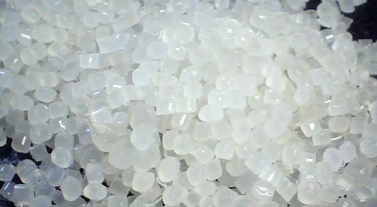
Main points
The EU Parliament adopted a resolution on 14 March 2019, outlining its long-term climate strategy position
The non-binding resolution urges EU lawmakers to push for carbon neutrality by 2050 and to increase the EU’s 2030 reduction target to -55%
In November 2018, The European Commission outlined eight potential emission reduction scenarios towards 2050 in its strategic long-term vision
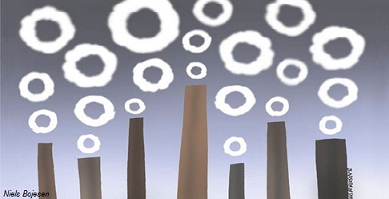
Oil fell about 2 percent on Friday, slipping further from 2019 highs as focus shifted to a lack of progress in U.S.-China trade talks and as grim manufacturing data from Germany and the U.S. reignited fears of a slowdown in the global economy and oil demand.
Wall Street’s main indexes tumbled between 1 and 2 percent on Friday after manufacturers in Europe, Japan and the United States suffered in March as surveys showed trade tensions had impacted factory output, a setback for hopes the global economy might be turning the corner on its slowdown.

The opposition-led National Assembly of Venezuela this week voted to suspend crude oil shipments to Cuba after its president, Juan Guaido, slammed these exports as “funding dark purposes” in a tweet from Sunday.
The Economist Intelligence Unit reports that Guaido’s proposal was voted for unanimously and took immediate effect. However, it remains to be seen whether it will take actual effect as the Maduro government still seems to be in charge of PDVSA, the troubled national oil company.

As other countries get tough on plastics, Canada lags
Photos of seabird carcasses stuffed with disposable cigarette lighters and plastic bottle caps are losing their shock value. Images of sea turtles eating polyethylene bags could become cliché. Everyone now knows our planet is choking on plastic waste.
As one scientific paper puts it, “Plastic waste is now so ubiquitous in the environment that it has been suggested as a geological indicator of the proposed Anthropocene era.”
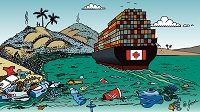
China-based Wuxi Graphene Film (owned by Grahope New Materials and The Sixth Element) produces patterned CVD graphene films for heating applications. These films are adopted by several Chinese device makers for different heating products – for example Grahope’s graphene eye mask we recently reviewed at Graphene-Info.
The team at Wuxi Graphene Film was kind enough to send a few such films for us to review. These specific films are designed for one of WGF’s customers and include a proprietary design which includes a USB connector for easy setup – you just plug these into a USB power source and the films heat up very quickly.
The films are plastic films, covered with a patterned metal coating (this is the silver-gold pattern you easily see on the films). The pattern itself is done according to customer needs. The metal pattern is the main conductor of electricity on the film.
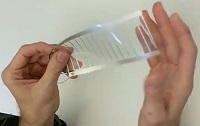
KIA Motors has opened a composite material technical center in KCTECH in South Korea as part of a new collaboration to advance carbon composite parts application in the automotive industry.
Jeon-ju city (South Korea), the Korea Institute of Carbon Convergence Technology (KCTECH, Gwangju, South Korea) and KIA Motors company (Seoul, South Korea) have announced the signing of a memorandum of understanding (MOU) for accelerating carbon composite parts application in automotive industry. The announcement was made on March 6, but the agreement is effective as of January 31, 2019.
KIA Motors has reportedly opened a Composite Material Technical Center in KCTECH Composite Manufacturing & Technical Center in South Korea, and the automobile manufacturer will start automobile composite parts research in collaboration with KCTECH.
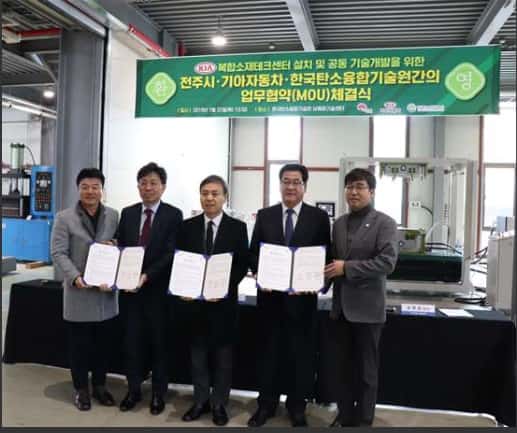
Hard-liners in Congress are pushing for tougher action, saying the administration has to deliver on its rhetoric to cripple the Iranian economy.
The Trump administration is divided over how far to pressure Iran with its sanctions campaign, as it weighs options that could bolster imports of medicine to Iran and permit some foreign governments to keep buying Iranian oil, according to former officials, congressional aides and sources close to the White House.
Republican hard-liners in Congress, including Sens. Tom Cotton and Ted Cruz, are pushing the White House to make good on President Donald Trump’s vows to place “maximum pressure” on Iran’s economy.
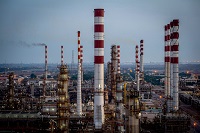
US phenol markets continue to grapple with tight supply while persistent oversupply of co-product acetone still weighs on production.
Supply levels are just starting to recover heading into this year’s International Petrochemical Conference (IPC), following outages and reduced rates by three separate producers in the first quarter.
Each producer declared force majeure on phenol, which kept supply incredibly tight in North America and left little material for domestic spot or export markets.
“We’ve seen it all — adder increases, force majeures,” a buyer source said of market conditions that have tightened since mid-2018. “Customers were scrambling; no one has product.”
Domestic buyers paying on a spot basis have taken some increases amid the material shortage.
Even as production rates ramp back up, continued acetone oversupply may prevent producers from running at full rates.
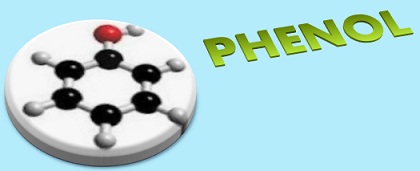
The US polyethylene (PE) industry is seeking outlets for its new production capacities heading into this year’s International Petrochemical Conference (IPC).
Supply has been lengthening since the second half of 2018 as new plants which came online in 2017 started ramping up to normal production rates.
This has pushed inventories to multi-year highs and created some downward pressure on pricing.
With more new capacity set to come online in 2019 and into the next decade, the industry is now searching for outlets for its expanded production.
US PE demand is considered mature and is not expected to grow beyond the expansion of GDP in the coming years.
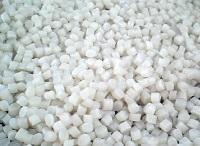
As America’s Russia hysteria is stirred once again by the arrival of the long-awaited report of the U.S. Department of Justice into Russian meddling in the 2016 presidential election, a surge in Russian oil imports has arrived on America’s shores.
The surge was little noticed by what passes for the U.S. foreign policy apparatus these days which has now become obsessed with toppling the current regime in Venezuela—a regime unloved by American oil interests who saw their property expropriated by the Venezuelan government.
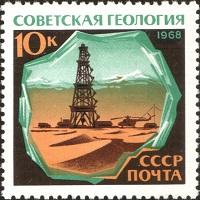
Budget needs are forcing Saudi Arabia to push for oil prices of at least $70 per barrel this year, industry sources say, even though U.S. shale oil producers could benefit and Riyadh’s share of global crude markets might be further eroded.
Riyadh, OPEC’s de facto leader, said it was steeply cutting exports to its main customers in March and April despite refiners asking for more of its oil. The move defies U.S. President Donald Trump’s demands for OPEC to help reduce prices while he toughens sanctions on oil producers Iran and Venezuela.

Seoul, Mar 24 Scientists have developed a textile-based display technology that is washable and does not require an external power source, paving the way for smart clothes.
When we think about clothes, they are usually formed with textiles and have to be both wearable and washable for daily use. However, smart clothing has had a problem with its power sources and moisture permeability, which causes the devices to malfunction.
To ease out the problem of external power sources and enhance the practicability of wearable displays, Professor Kyung Cheol Choi from the Korea Advanced Institute of Science & Technology (KAIST) fabricated their wearing display modules on real textiles that integrated polymer solar cells (PSCs) with organic light emitting diodes (OLEDs).
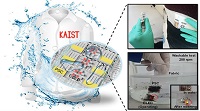
Oil price rising as glut evaporating
Crude oil prices are on the rise. Last week WTI topped $60 a barrel for the first time since Nov 9, 2018 and Brent hit a four-month high at $68.69 on Thursday.
The determination of the Organisation of Petroleum Exporting Countries (Opec) and its allies, Russia included, to continue with their experiment of cutting output to get rid of the glut in the market seems working.
Fresh evidence of the success of Opec’s strategy arrived last Wednesday when the US Energy Information Administration posted a large and unexpected drop in its crude inventories. US stockpiles fell 9.6 million barrels against analysts’ expectations for an increase of 309,000 barrels. The draw was the largest since July 2018 and brought stockpiles to their lowest since January, sending US oil prices higher.
